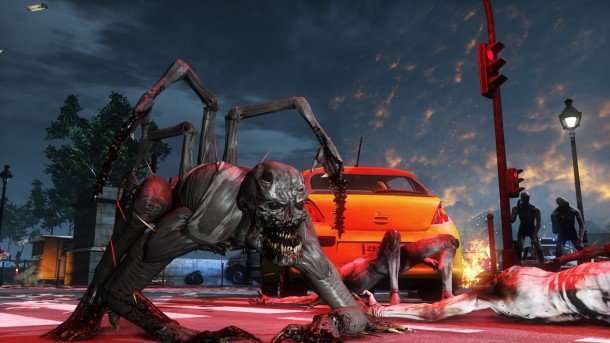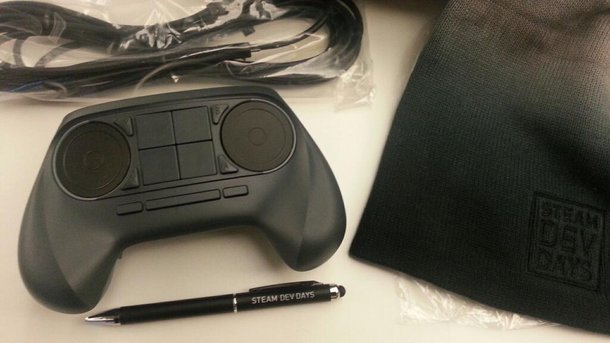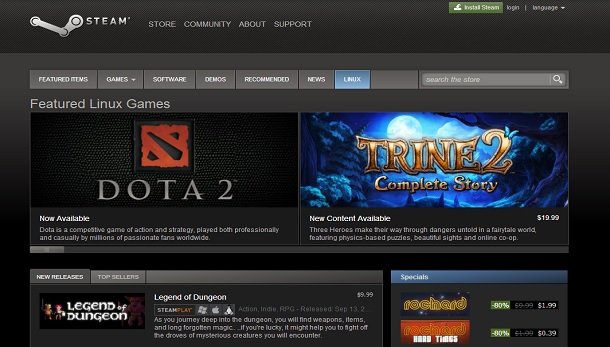Interview with Tripwire's John Gibson: "Microsoft's done their best to kill gaming on PC for as long as I can remember"

PCG: You're supporting Linux with Killing Floor 2. How do you feel about SteamOS so far?
JG: We like it so far. It's been a challenge finding people that know Linux. We brought a guy on named Terry Hendrix who was part of the original Icculus crew—if you don't know who they are, they're a group of Linux developers, one of them is Ryan Gordon . For the past 10-15 years he's probably done 90 percent of the Linux game ports in the world. Really talented guy. He did the Linux ports of Red Orchestra 1 and Killing Floor. He's done a lot of work with Valve on SteamOS.
Terry, the guy we brought on, was part of the Icculus group. He's really helped us get going in the right direction. Up until Valve announced SteamOS, nobody knew about any other Linux game developers, so everyone was turning over every stone to try to find them.
But we like the idea of an open system that is designed around game development, that has the OS bloat removed so it can run as efficiently as possible. You've seen a lot recently with AMD's Mantle trying to get around the DirectX inefficiencies, but OpenGL kinda allows you to do that already. So it's a cool platform.
PCG: What do you think of the Steam Controller?
JG: I've got a love-hate relationship with the controller. [laughs]
PCG: I think [Editor-in-chief Evan Lahti] has a hate-hate relationship with the controller.
Keep up to date with the most important stories and the best deals, as picked by the PC Gamer team.
JG: I actually don't agree with Evan on his evaluation of the controller . When he says that he doesn't see any advantage over a gamepad, I completely disagree. I think it's vastly superior to a gamepad and somewhat inferior to a mouse.
To be a reasonable thing you're going to want to use, I feel like it's about 50% there. If a gamepad is 0, and I do consider a gamepad zero, and a mouse is 100, right now the Steam Controller is probably like a 50. I want to see it get to like an 80 before Valve ships it. Fingers crossed.

I think the thing that makes it superior to a gamepad is you can do quick aiming with it. You can use your thumb. With a gamepad, it's all directional, you can only aim so fast. You can do quick snap movements with the steam controller which a gamepad can't do. The problem is, right now at least, you have to tune your sensitivity, so you can do quick snap movements or you can do fine movements to line up headshots [but not both]. That's something that needs to be solved. It might be something that we're going to put some R&D into, possible solutions for that even for our own implementation. But we're hoping it's something Valve can refine the hardware some or come up with some software solutions as well that solve those problems.
If you add in some of the things that gamepads have, like auto aim and target adhesion and target friction, if you add that to the Steam Controller, it would be better than a gamepad. At least you'd still have all the things you'd get from a gamepad, but you could still quickly rotate around. I'm very hopeful that when it's refined, it's going to be awesome. I think they're on the right track. I hope they get it right before they ship it.
PCG: Is SteamOS going to be able to take on Sony and Microsoft? It's one thing to say it can compete against the consoles, but what about Windows? Right now, 100 perfect of Steam games are on Windows, and 10 percent, maybe 5 percent, are on Linux.
JG: It'll be just like when digital took over retail. Steam didn't just turn on one night and then Walmart and Best Buy got freaked out because they weren't selling PC games anymore. It took 2 or 3 years or 4 years. But it did happen, and it happened a little bit at a time. I think that's Valve's strategy. They're taking one step at a time. They know if they try to do a massive leap and go head-to-head right at the outset, they could stumble.
But taking these incremental steps, even Valve says they're not trying to go head-to-head against Microsoft and Sony. And I'm like, "this year." But in five years, or three years, I think that they probably will be going head-to-head with them and probably taking over.

In general, for gaming, I think [Linux] will become like Windows is now. I think every game's going to be on Linux eventually, so almost every game will be on SteamOS. Microsoft's done their best to kill gaming on PC for as long as I can remember. Having an OS that's actually not trying to kill gaming, I think that's going to be very good for games. I think it'll just grow.
Or maybe it won't and we'll put games on some other platform. But I think it has everything going for it. It's Valve's game to lose at this point. I'm very interested to see how it plays out.
For us, we're very much about when new gaming technologies come along, of being there on the forefront. When digital distribution came out, we were right there. When OnLive came out, we were right there. When the Ouya came out, we were there on the Ouya. If it becomes the next big thing, great. Same thing with SteamOS. I think it has an infinitely better chance than Ouya or OnLive.
For more on Tripwire Interactive and Killing Floor 2, check out our massive reveal feature and a deep dive into how Tripwire designs and balances the best FPS gunplay around .

Wes has been covering games and hardware for more than 10 years, first at tech sites like The Wirecutter and Tested before joining the PC Gamer team in 2014. Wes plays a little bit of everything, but he'll always jump at the chance to cover emulation and Japanese games.
When he's not obsessively optimizing and re-optimizing a tangle of conveyor belts in Satisfactory (it's really becoming a problem), he's probably playing a 20-year-old Final Fantasy or some opaque ASCII roguelike. With a focus on writing and editing features, he seeks out personal stories and in-depth histories from the corners of PC gaming and its niche communities. 50% pizza by volume (deep dish, to be specific).

